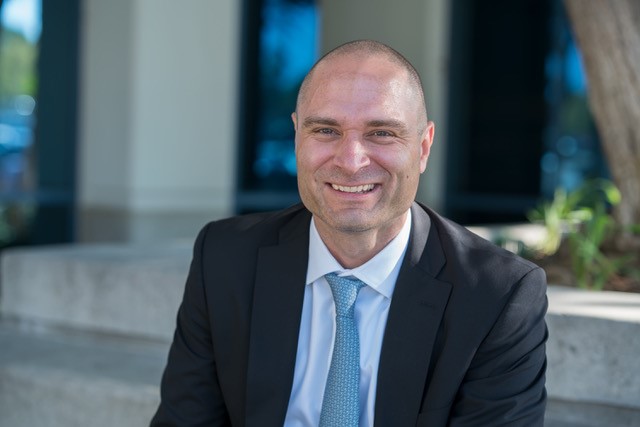To succeed in your career, it often takes a high level of business Japanese communication skill. In fact, foreign professionals need to learn Japanese business etiquette, which boils down to understanding Japanese culture at a deeper level.
This is where Coto Business Communication School — or CBCS — comes in.
As our premier business Japanese communication class, we aim not to just teach you keigo (business Japanese), but help you navigate complex business scenarios in Japan and foster the right communication skills necessary to build beneficial relationship in the Japanese workplace. Head here to sign up.
What will we learn at CBCS?
How do you negotiate with Japanese partners and build trust among your clients and colleagues? How do you bridge the gap between your company and a Japanese company?
At CBCS, we invite two renowned corporate trainers, Ryan Bodine and Maikko Kidokoro, to help you navigate the Japanese business scene.
Business Japanese class at Coto offers a blend of cultural education, practical training, and personalized coaching. We have helped 5,000 foreign nationals improve their Japanese communication, and are confident in our ability to provide professionals with a comprehensive Japanese learning solution.
Features of Coto Business Japanese School
1. Small class
With a maximum of eight students, we ensure that you receive personalized attention.
2. Customizable
We have two different classes, tailored for two different people: those who has worked in Japan, and those who have not. This will help our professional teachers target the right pain points and give you the guidance you need to succeed in real Japanese business situations.
3. Individual-focused Approach
We believe that the growth of each individual leads to the growth of the organization.
Some coaching companies market coaching as a means of bringing individuals into alignment with the values of the organization, but we do not believe this approach is beneficial to either the individual or the organization. Instead, we value personal freedom and consider it key to drive collective success.
CBCS Programs & Course Fee
Based on your employment history and goal, our Japanese business class modules are divided into three courses.
For individuals who have never worked in Japan
| Modules | Description | Time |
|---|---|---|
| Get to Know Japan | Gain a deep understanding of modern Japanese thinking and business landscape, informed by insights into demographics, culture, and socioeconomics. Here, you’ll develop essential business etiquette skills for successful communication in Japanese professional settings | Sessions: Twice, 1-hour session When: June 24, July 1 Time: Saturday, 8:50-9:50 AM (JST) |
| Working in Japan 1 | Discover the hidden influences of Japanese aesthetics on daily life, and gain invaluable insights into effective communication and collaboration with Japanese colleagues in the workplace. | Sessions: Twice, 1-hour session When: July 8, July 15 Time: Saturday, 8:50-9:50 AM (JST) |
For individuals who have worked in Japan
| Modules | Description | Time |
|---|---|---|
| Working in Japan 2 | Gain the essential skills to effectively communicate with Japanese colleagues, clients, and partners by uncovering the 5-dimensional model of Japanese culture. With a deep understanding of your own communication tendencies, you’ll learn practical strategies for success in cross-cultural communication. | Sessions: Four times, 1-hour session Schedule: June 10, June 17, June 24, July 1 Time: Saturday, 10:00-11:00 AM (JST) |
Meet Your Business Japanese Coach

Ryan Bodine
Ryan has been instrumental in assisting multinational companies achieve their objectives through tailored coaching and training since 2008.
His extensive experience spans diverse industries such as tech, entertainment, finance, construction, automotive, and education, catering to professionals from various backgrounds.
Ryan’s expertise has been further strengthened by his I.C.F. coaching certification and an M.S. in Organizational Leadership from National University in San Diego.
Additionally, he has been helping students reach their academic aspirations at Montana State University.

Makiko Kidokoro
Maki is a highly experienced professional in business consulting and project management, with a 14-year tenure at a consulting firm.
She has a strong background in leading projects for over 30 companies.
Additionally, Maki is passionate about assisting non-Japanese individuals in Japan through her work as an instructor and developer of a business culture training program for international students, as well as a Japanese language instructor for immigrants and refugees.
Her expertise and dedication bring valuable cross-cultural understanding to any role she takes on.
Course Fee
Course fee for the two class options is ¥44,000
Interested? Contact us to get started!
To join our courses, fill out the contact form below. You can proceed with payment immediately to expedite the process — our coordinators will get in touch you soon in 1-2 days either way to help you get started! Application deadline is June 3.
How can we apply?
For individual application: Please fill out the form, and proceed with payment through available options.
What is the method of payment?
For general customers, we offer several payment options, including cash, bank transfer, credit card, and online payment. For international transfers, please follow the instructions we provide. Please note that any bank transfer fees must be covered by the student. Payment in full is required within one week of submitting your application form.
Is it possible to conduct the course in person?
In principle, the training will be conducted exclusively online as the instructor resides overseas.
What is the maximum number of participants?
Each class has 2 to 8 students.
What happens if I can't attend the session for a day?
We will provide you with a video recording of the training session that you can review at your convenience. The video will be accessible for two weeks.
Can I participate with my camera off?
While we understand the need for flexibility, we kindly request that all participants keep their cameras on throughout the training session. This is because there will be pair work involved, and having your camera on will enable effective collaboration and communication with your partner.
